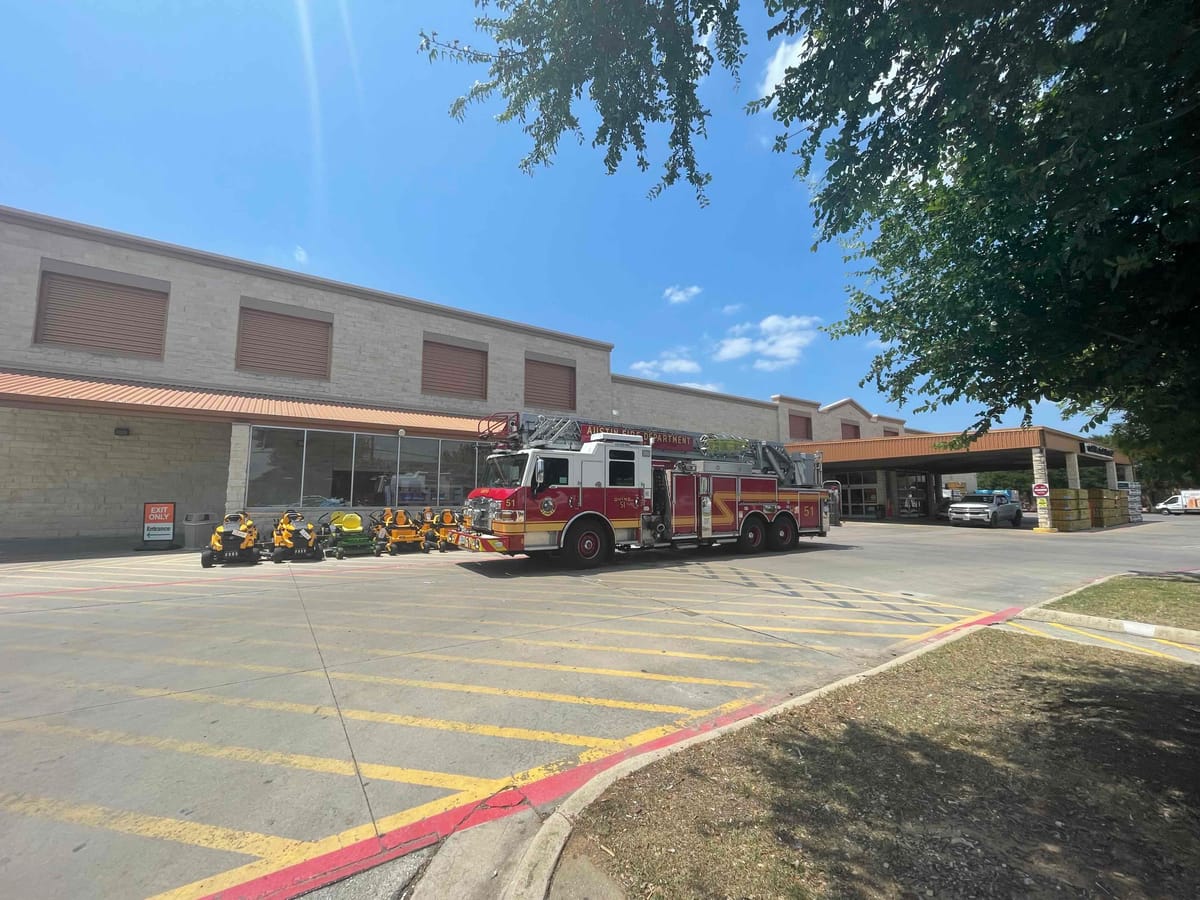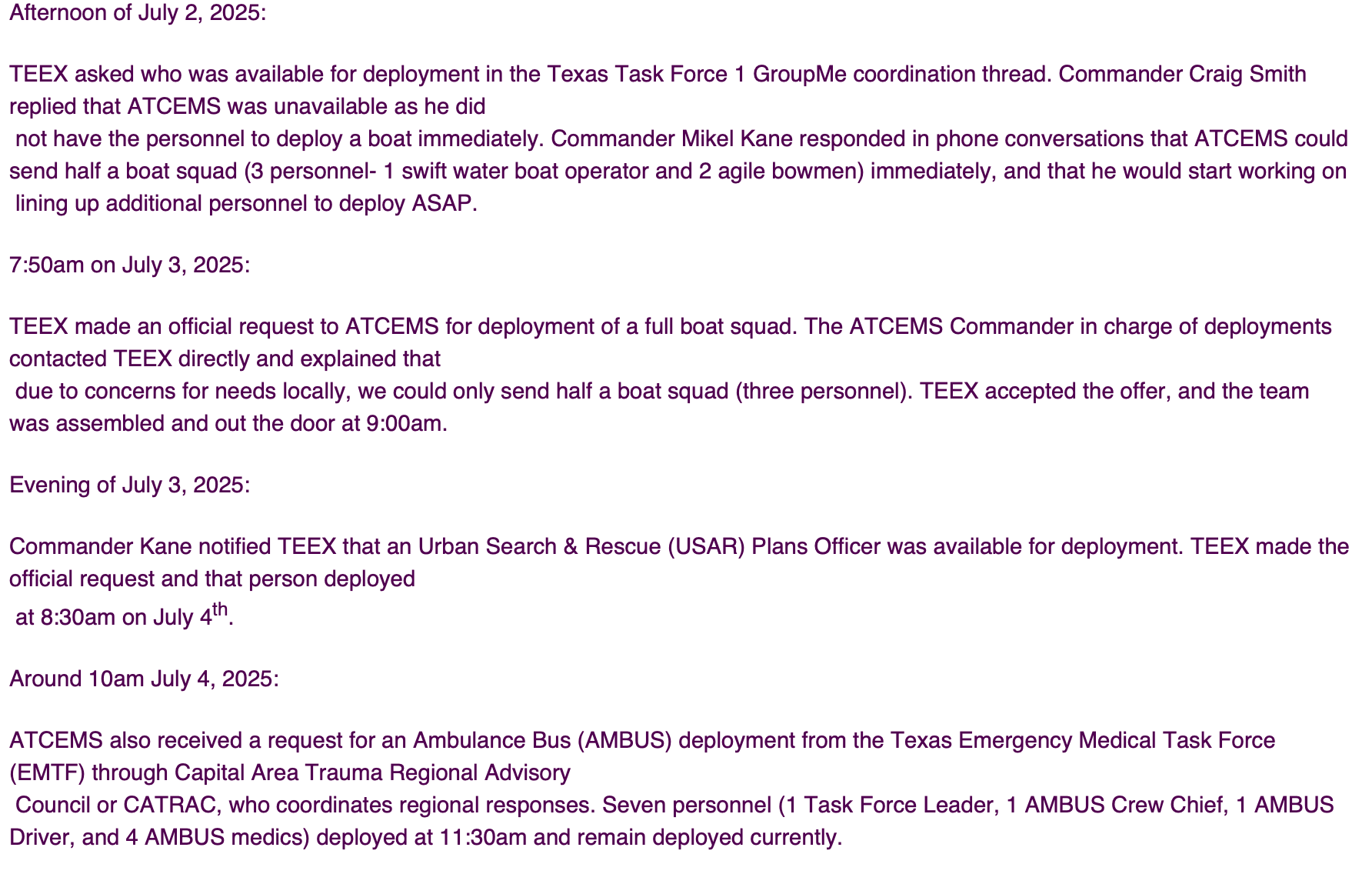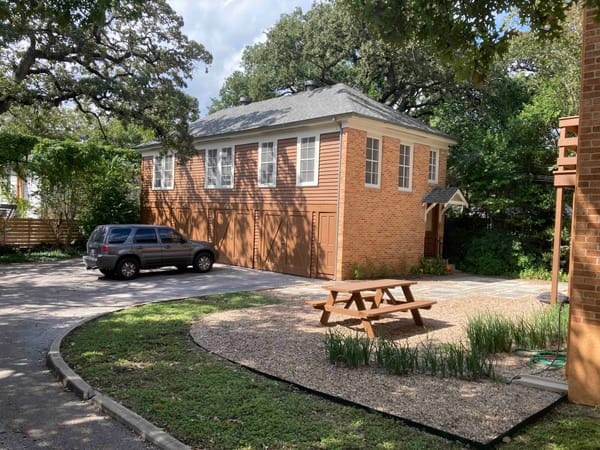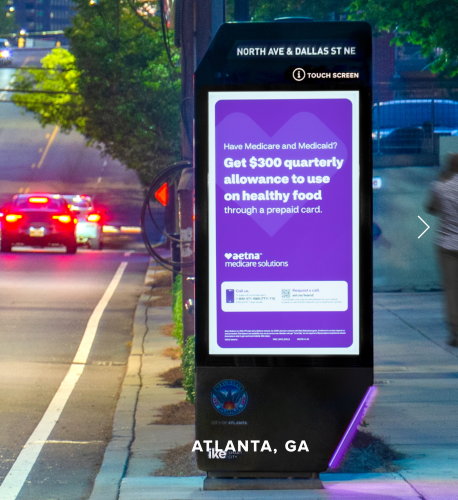Austerity kept AFD away from Kerrville
It wasn't about protecting Austin.

The Austin Fire Department did not react to the requests for aid from the state as it usually would, according to two retired firefighters with extensive experience in special operations.
The idea that Chief Joel Baker or others in leadership did not deploy resources to Kerrville because they wanted to be sure there was enough manpower in Austin makes no sense, said Matt Rush, a former rescue captain who retired from AFD in 2023, and Randell Nations, a battalion chief in special operations who retired in 2019.
Historically, said Rush, AFD has almost always granted requests for resources to outside organizations with whom the department has a Memorandum of Understanding (MOU). Sending firefighters to address an emergency elsewhere does not create vacancies locally –– the department simply backfills their position by using overtime.
Rush, who participated in the response to the Halloween 2015 floods and authored the after-action report, noted that even in the midst of severe flooding locally AFD was also sending boat crews to aid in the hurricane response in Galveston.
"We have a mandate from City Council for four-person staffing – every fire truck has four people on it no matter what," he said. "If we send resources from an MOU to a flood event, we are not losing capability within the city of Austin. We're not closing 10 fire stations in Austin to go help Kerrville."
The way the process works, said Rush, is there is a contact at the fire department who fields requests for resources that are made informally through the GroupMe chat app (Yes, it's all very Hegsethian). That person then runs the request up the chain of command, and traditionally the request was almost always granted.
What happened this time, said Rush, is that the request simply wasn't forwarded up the chain of command because of the order Baker gave a month ago suspending deployments. The message from the top, said Rush, was do not ask for deployments because they won't be granted.
In an email, Assistant Chief Thayer Smith confirmed that.
"While we are now aware that Texas Task Force 1 was pre-rostering task force members on the 2nd and 3rd, it was not known by any member of the AFD Executive Team until the 4th," he said. " Since our members already knew since early June that we were pausing deployments, none of them made a request to AFD to deploy until the 4th when the helicopter search and rescue members asked."
This aligns with what Baker conceded in an interview with KUT, where he said the following about the June memo suspending deployments:
"Words matter. What it should have said is handle it on a case-by-case [basis], and we didn't. That's on me as the leader of this organization."
In contrast, the requests via GroupMe to the EMS Department were run up the chain of command and resulted in assistance granted as early as July 2, as you can see in the screenshot of an email detailing the timeline of events provided to me by EMS:

"They didn't have a problem responding," said Nations, the former battalion chief, about EMS.
Now, in the timeline EMS provided me, it did cite the need to preserve local resources in only granting a half boat squad on July 3. But EMS's sworn staff is only 610, compared to roughly 1,300 at AFD.
In the statement Mayor Kirk Watson released rebuking Austin Firefighters Association President Bob Nicks for excoriating Baker's response to the emergency, Watson said that he had personally asked Nim Kidd, chief of the Texas Division of Emergency Management, if he was getting "all he needed" from the city of Austin.
"He characterized Austin's response as 'above and beyond,'" said Watson.
Rush described Kidd as "a phenomenal individual" in the field of emergency management and a potential future FEMA director, but said he "is also very much a politician" who is not going to publicly rebuke the leaders of a jurisdiction he collaborates with. His job during an emergency is to ask for as much help as he can get and be grateful for whatever he receives.
"He’s never going to tell Kirk Watson or Chief Baker to his face, 'you didn’t come through for me,'" said Rush. "He’s not going to kick the giving goose in the mouth."
The bottom line, said Nations, is that AFD could have done more and should have done more. The only reason it didn't, he said, is "poor management, bad leadership and not caring about the basic tenet of the job, which is life safety."
On Friday morning Smith said the department is "back to considering deployments on a case-by-case basis," and noted that on Thursday night it approved a six-person boat team to deploy to Childress, in the Texas panhandle, in anticipation of heavy rain.
The AFA should have waited
Nicks was right that Baker's decision prevented AFD from helping as much as it could have, but he probably didn't help his cause by making such inflammatory comments about the chief, particularly as the emergency response was ongoing.
It has predictably prompted an ugly online pile-on, including implied threats of violence against Baker. One social media personality with a huge following posted Baker's home address and various MAGA grifters have already started ginning up racist attacks against the chief as a "DEI" hire.
On Twitter, Nicks denounced the "DEI" narrative and pleaded with supporters to focus on the facts of the case.
Austerity in action
AFD didn't respond to Kerrville the way it normally would have because of budget concerns. That is indisputable.
I agree with Nicks that, because deployments are reimbursed by the state, the city's budget crisis is not a good excuse not to deploy. If AFD is worried about short-term cashflow, then the city has substantial budget reserves that it could use to plug that hole temporarily.
Where I disagree with Nicks is on something he said at his press conference the other day, where he suggested that a rapidly-growing city like Austin shouldn't have budget concerns.
"We are not a Detroit or Pittsburgh or Cleveland," said Nicks, himself a Michigan native. "We're not a Rust Belt city. We have rising revenues.”
But the fact is that the city is in a budget crisis that is already coming at the expense of public safety functions. EMS is shutting down ambulances due to budget constraints. This is the predictable and frankly intended result of the revenue constraints the state of Texas placed on local governments six years ago.
Hopefully, Austin residents recognize that they are going to have to step up and approve a tax increase to allow the city to go above the state revenue limit. There is no better argument for bolstering our infrastructure than the horrors that Mother Nature keeps unleashing on the state and region.
Kerr County considered putting in place an emergency siren system a few years ago, recalled County Judge Rob Kelly in an interview with the New York Times. But they decided against it: "Taxpayers won't pay for it," he said.
If you found this article particularly valuable, you can show your appreciation by buying me a cup of coffee to fuel further investigation and analysis of city politics.





